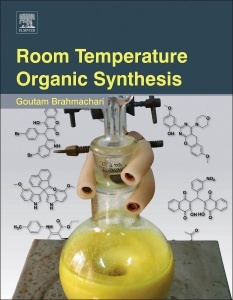Description
Room Temperature Organic Synthesis
Author: Brahmachari Goutam
Language: English
Subject for Room Temperature Organic Synthesis:
Keywords
<; p>; Green chemistry; sustainable; environmentally benign; organic synthesis; bond formation; room temperature conditions; reagent; mechanism; Carbon-Carbon bond forming reactions; Carbon-Heteroatom bond forming reactions; detailed experimental procedure; characterization data of compounds <; /p>
386 p. · 15x22.8 cm · Hardback
Description
/li>Contents
/li>Readership
/li>Biography
/li>Comment
/li>
Filling a gap in the scientific literature, Room Temperature Organic Synthesis is unique in its authoritative, thorough, and applied coverage of a wide variety of "green" organic synthetic methodologies. The book describes practical, feasible protocols for room temperature reactions to produce carbon-carbon and carbon-heteroatom bond formations including aliphatic, aromatic, alicyclic, heterocycles, and more. Consistently organized for easy access, each selected reaction is discussed in a very compact and structured manner including: reaction type, reaction condition, reaction strategy, catalyst, keywords, general reaction scheme, mechanism (in selected cases), representative entries, experimental procedure, characterization data of representative entries, and references. This book will be a valuable resource for synthetic organic, natural products, medicinal, and biochemists as well as those working in the pharmaceutical and agrochemical industry.
Chemists (organic, natural product, researchers involved in drug discovery and development); biochemists; pharmacologists; researchers interested in green/sustainable methods
Prof. Brahmachari serves as the founde
- Includes more than 300 protocols for a green approach to organic synthesis
- Provides specific detail about experimental conditions
- Increases efficiency in the laboratory by eliminating time-consuming literature searches




